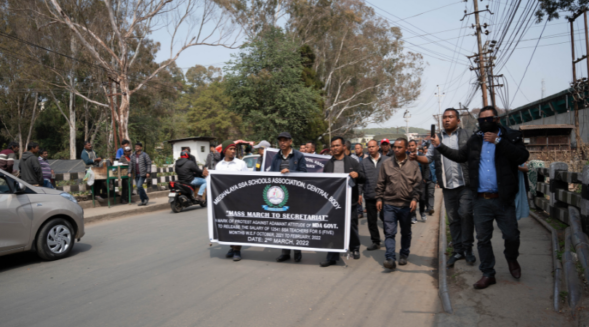
Editor,
I would like to draw the attention of the readers to the denial of education to girls in hijab in Karnataka and in some other places.
Let me first quote a statement made by Karuna Nundy, Advocate, Supreme Court of India. She said, “The battle over religion has been fought over women’s bodies as a subject.” How true is this when we take references from Supreme Court rulings of two landmark cases.
First, the Shayara Bano case (triple talaq case) and second, the Sabarimala case (entry of women in a temple). The hijab is an essential religious practice in Islam. The invocation of the Karnataka Education Act,1982 in the state of Karnataka with respect to wearing a uniform, violates Article 14 and Article 25 of the Indian Constitution.
A few days ago, Muslim girl students were asked to sit in a different room. This is a doctrine called “Separate but equal,” which was constitutionally upheld by the US Supreme Court in the case of Plessy v. Ferguson,1896 but later on struck down in the landmark case, Brown Vs. Board of School Education, 1954 which was decided by the US Supreme Court.
It also reminds me of the Bijoe Emmanuel case, where the students respectfully stood up when the National Anthem was played but did not sing owing to their faith.
The religious apartheid which is happening in Karnataka is a violation of the Right to Education where there should be no discrimination on the grounds of religion, sex, place of birth and creed. The stance of Karnataka is an infraction to the International Covenant on Civil and Political Rights, where India is a party to it. It is imperative for us to respect each other’s religion and promote positive secularism.
All of this is an aberration from the Indian idea of “Unity in Diversity” and no less an attack on the spirit of fraternity and fraternal way of living. The greatest danger of democracy is the oppression of the majority. Not just in terms of votes and religion, but also in terms of ideas and thoughts. We need to understand that this is a nation of plural views, identities, a multitude of cultures, thoughts, and expressions. The strength of India lies in the fact that we are an inclusive society. We are inclusive from the birth of our Nation.
Justice Dr DY Chandrachud said, “Freedom is not a supplicant to power.” It remains to be seen what the judiciary will do. Madhav Khosla in his book, “The Indian Constitution” wrote that it is in the courtroom where the Constitution is regularly made and unmade, interpreted and reinterpreted and understood and misunderstood.
Melamshwa Allya, Adv, Shillong






